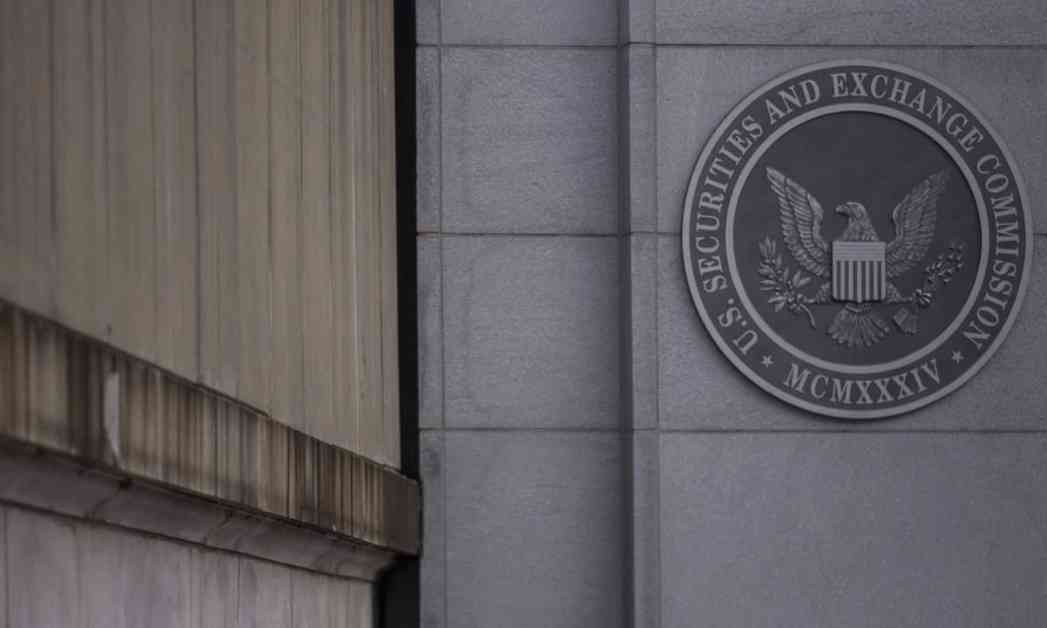SEC Settlement Leads to Restrictions on Crypto Trading on eToro Platform
In a significant development in the world of cryptocurrency trading, the Securities and Exchange Commission (SEC) has imposed restrictions on eToro, a prominent financial services company operating in the United States. Following a settlement with the SEC, eToro will cease trading almost all crypto assets on its platform within the next six months. This decision comes in response to allegations that eToro violated federal securities laws dating back to 2020.
According to a press release from the SEC, eToro was found to have been operating as an unregistered broker and clearing agency, facilitating the buying and selling of crypto assets as securities on its online trading platform. Despite offering these services, eToro failed to comply with the registration provisions of the federal securities laws. As part of the settlement agreement, eToro will pay a fine of $1.5 million and make only a limited set of cryptocurrencies available for trading on its platform.
eToro’s Compliance Efforts and Regulatory Challenges
Over the past few years, eToro has faced regulatory challenges as it navigates the evolving landscape of cryptocurrency regulation. In June 2023, the exchange took steps to remain compliant with the SEC’s laws by imposing restrictions on several crypto assets classified as securities in the agency’s lawsuits against rival trading platforms Coinbase and Binance. These assets include Algorand (ALGO), Decentraland (MANA), Dash (DASH), and Polygon (MATIC).
Notably, eToro had already delisted Ripple (XRP), Cardano (ADA), and Tron (TRX) for various reasons in the months prior to the SEC settlement. The exchange’s efforts to align with regulatory requirements reflect a broader trend in the cryptocurrency industry, where companies are under increasing pressure to comply with existing laws and regulations.
In addition to the SEC’s actions, eToro is facing regulatory scrutiny from other jurisdictions as well. Last month, the Australian Securities and Investments Commission sued the platform for harming investors through its products. These regulatory challenges highlight the complex regulatory environment in which cryptocurrency exchanges operate and the importance of adhering to established guidelines.
eToro’s Response to the SEC Settlement
Following the SEC’s order, eToro’s customers have been given 180 days to sell assets that will be eliminated from the platform, including those classified as securities by the SEC. Failure to do so will result in the exchange liquidating the cryptocurrencies and returning the proceeds to users. While eToro neither admitted nor denied the allegations brought forth by the SEC, the exchange agreed to comply with the terms of the settlement.
In a statement regarding the settlement, Gurbir Grewal, Director of the SEC’s Division of Enforcement, emphasized the importance of eToro’s decision to come into compliance with federal securities laws. By removing tokens offered as investment contracts from its platform, eToro is taking steps to enhance investor protection and operate within the established regulatory framework. The $1.5 million penalty imposed on eToro reflects the exchange’s commitment to ceasing violations of applicable federal securities laws while continuing its operations in the U.S.
Implications for eToro and the Cryptocurrency Industry
The SEC’s settlement with eToro has broader implications for both the exchange and the cryptocurrency industry as a whole. The restrictions imposed on eToro’s trading activities could impact the exchange’s user base and trading volume, potentially leading to a shift in the cryptocurrency trading landscape. As eToro adjusts its platform to comply with the SEC’s requirements, other crypto intermediaries may also face increased scrutiny and regulatory pressure to align with existing laws.
The settlement serves as a reminder that regulatory compliance is essential for cryptocurrency exchanges seeking to operate in a legally sound manner. By adhering to regulatory guidelines and addressing potential violations promptly, companies like eToro can mitigate risks and build trust with investors and regulators alike. As the cryptocurrency industry continues to evolve, regulatory challenges will remain a key consideration for companies operating in this space.
In conclusion, the SEC’s settlement with eToro underscores the importance of regulatory compliance in the cryptocurrency industry. By taking steps to address violations of federal securities laws and align with regulatory requirements, eToro is positioning itself to operate within the established framework of laws and regulations. As the cryptocurrency industry continues to mature, regulatory challenges will continue to shape the landscape for companies operating in this rapidly evolving sector.

